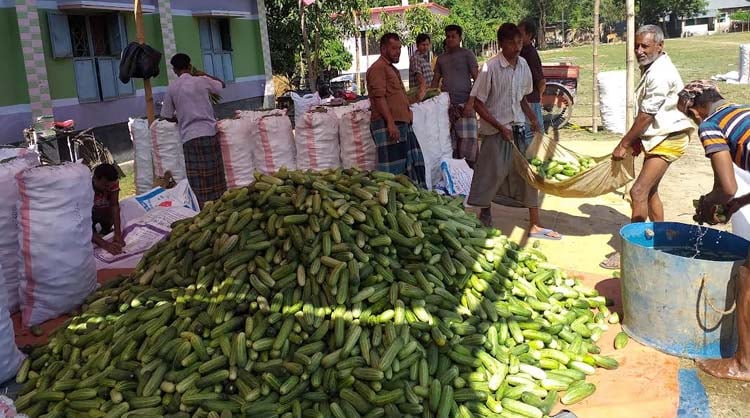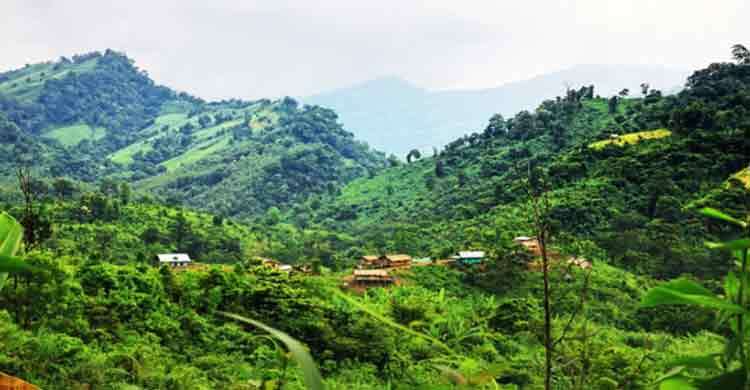Historically, relations between Bangladesh and China dates back to as early as before the Christian era. Contacts between the peoples of the two countries, which may be traced back to a few centuries, have continuously developed and expanded through Chinese travellers, emissaries, and traders; but relations between modern People’s Republic of China has flourished when present Bangladesh was part of Pakistan. Bangabandhu Sheikh Mujibur Rahman as Joint Secretary of Muslim Awami League paid a visit to China in 1957. Chinese Prime Minister Chou En Lai paid a visit to East Pakistan in 1957 when Huseyn Shaheed Suhrawardy was the Prime Minister of Pakistan, who was one of the founders of Muslim Awami League. Joint Secretary of Muslim Awami League Sheikh Mujibur Rahman read out address of welcome in honour of Chinese Premier. Chou En Lai also visited East Pakistan in 1960. Maulana Abdul Hamid Khan Bhashani of the NAP visited Peking now Beijing in 1963.
Since China sided with Pakistan during war of liberation of Bangladesh from the clutches of Pakistan’s armed forces in 1971, the People’s Republic of China did not recognise Bangladesh soon after our independence. The fact of the matter is that China did not show any adverse action against freedom fighters of Bangladesh either for which credit goes to Pakistan Ambassador to China Khawaja Mohammed Kaiser, who was from Khawja family of Dacca of Bangladesh. Ambassador Kaiser has had personal relationship with Prime Minister of China Chou En Lai who did not attack India in spite of pressure from Nixon administration of America to open another war front. This was confided to this writer by Khawaja Kaiser himself on his return to Bangladesh in 1972 and he was advised by exile Bangladesh government in India to stay back in China. He was the first Bangladesh Ambassador to Burma being appointed by Awami League government of Bangabandhu Sheikh Mujibur Rahman and served as Permanent representative of Bangladesh to the United Nations.
After the change over of government in Bangladesh in 1975 the People’s Republic of China accorded recognition to Bangladesh. Since then relations between Bangladesh and China has been flourishing to the benefit of both countries. Over the years the two sides have signed a plethora of bilateral agreements that covers from economic engagements, soft loans, social contacts, cultural exchanges, academic interactions, infrastructure development and military cooperation.
The visit of Chinese President Xi Jinping to Bangladesh from 7 October to 8 October enhanced relations between two countries to a strategic partner of cooperation. That has been reflected in signing of as many as 27 agreements. Of them, 12 agreements relate to loan while the rests are of Memorandum of understanding nature. These agreements related to building Karnaphuli Tunnel, coastal disaster management, ICT and fight against militancy while both countries agreed to advance China’s one belt and one Road initiative. Chinese investment mainly involves infrastructure, energy and power sector. After overseeing the signing ceremony of agreements both Chinese President Xi JInping and Prime Minister Sheikh Hasina delivered speech. Chinese President attached great importance to bilateral ties with Bangladesh and was ready to join hands to lift their ties from practical cooperation to a higher level. Bangladesh premier reciprocated the sentiment which has been reflected in the joint statements that “we agreed to elevate the relations between China and Bangladesh from a closer comprehensive partnership of cooperation to strategic partners of cooperation and to enhance high level exchanges and strategic level so that our bilateral relations continue to move ahead at a high level. Bangladesh Prime Minister Sheikh Hasina said, “We have elevated our closer comprehensive partnership of cooperation to a strategic partnership. We have agreed to work toward socio-economic advancement of the peoples of our two countries.”
Chinese President also had a discussion with President of Bangladesh Abdul Hamid who has requested Chinese President to consider duty free entry of Bangladesh products to Chinese market. Chinese President was entertained by President of Bangladesh followed by cultural event at Banga Bhawan. Trade relations between the two countries are in favour of China. Bangladesh’s import from China stands at 7.19 billion from July of 2015 to March of 2016. On the other hand, export from Bangladesh to China stands at 558 million dollars. Mostly frozen foods, leather, agricultural products and wooven garment goes to Chinese market from Bangladesh. There is a need to diversify export products to reach different markets of the world.
Chinese investment in Bangladesh is quite encouraging. Until 2015, Chinese investment in Bangladesh stands at $ 56.8 million dollar. Pharmaceutical industry and ship building are the top investment target of Chinese companies. China has begun working with Bangladesh to promote the construction of an economic corridor connecting Bangladesh, China, India and Myanmar as part of China’s one belt and one road initiative. This initiative reflects old silk route of ancient times.
Prime Minister Sheikh Hasina and Chinese President Xi Jin Ping jointly laid the foundation of the Karnaphuli River tunnel and the Chinese special Economic and Industrial zone in the port of Chittagong. MOU for both projects were signed during Prime Minister Sheikh Hasina’s visit to Beijing in 2014.
Current development between Bangladesh and China is not likely to be taken lightly by Bangladesh’s close door neighbour India. Some Indian columnists in the recent past talked about concern that arose from “India’s vulnerability in the Siliguri corridor, often referred to as the chicken neck”. This 200 Kilometer long and 40 Kilometer wide corridor connects mainland India by road, rail, and air with its North-Eastern region of seven provinces, one of which is Arunachal Pradesh. China has been demanding some 90,000 square kilometers of Arunachal Pradesh. That has been constant source of tension between India and China against the backdrop of Indo-China war in 1962.
Therefore, there is a need to watch India’s reaction to the visit of Chinese President in Bangladesh. Bangladesh needs to develop relations with both China and India to keep a balance between two economic powerhouses of Asia.















